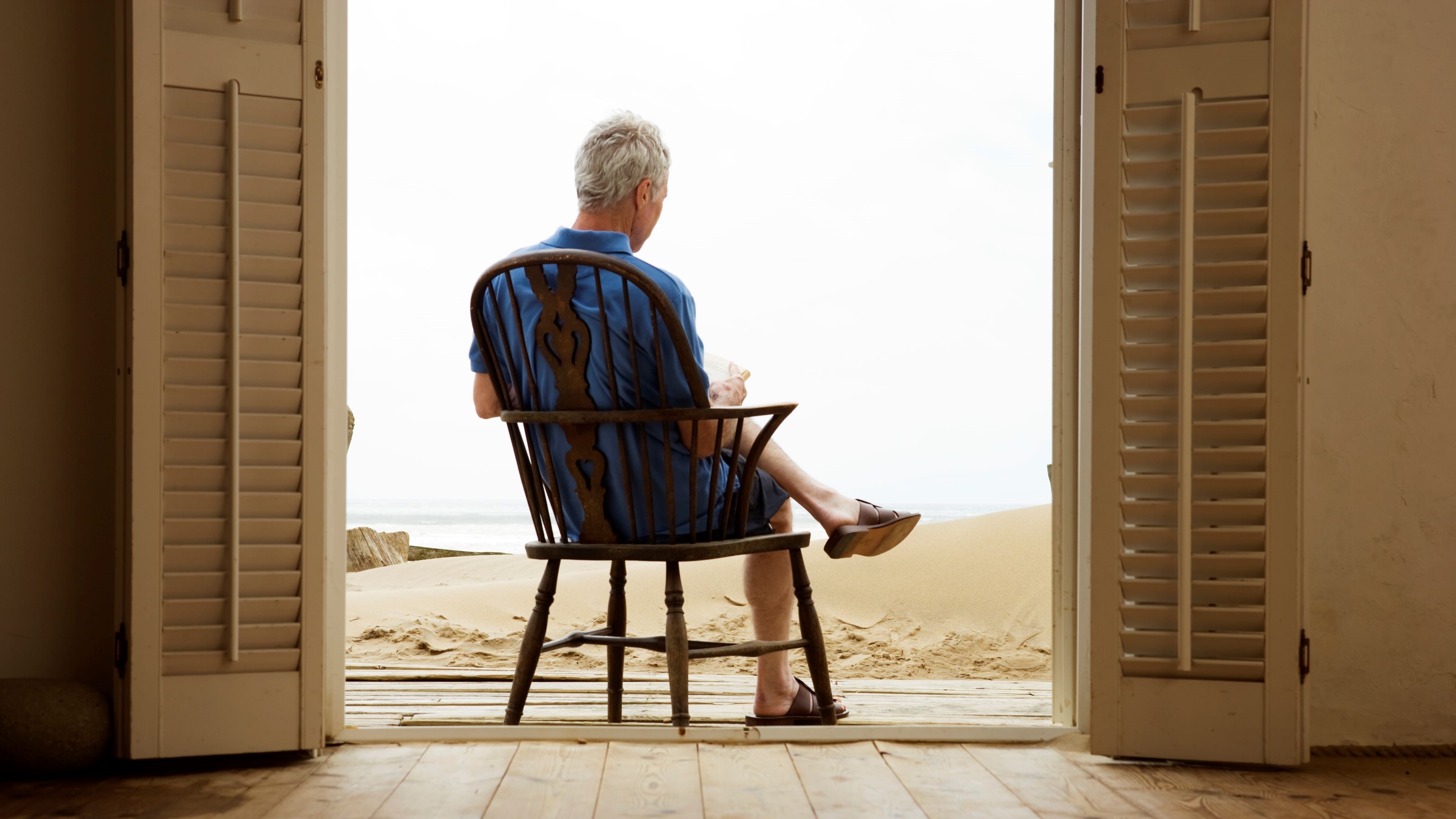Demand for Vacation Homes Down 50% from Pre-Pandemic Levels
Between high mortgages and return-to-office plans, there's less interest in vacation homes.


Profit and prosper with the best of Kiplinger's advice on investing, taxes, retirement, personal finance and much more. Delivered daily. Enter your email in the box and click Sign Me Up.
You are now subscribed
Your newsletter sign-up was successful
Want to add more newsletters?

Delivered daily
Kiplinger Today
Profit and prosper with the best of Kiplinger's advice on investing, taxes, retirement, personal finance and much more delivered daily. Smart money moves start here.

Sent five days a week
Kiplinger A Step Ahead
Get practical help to make better financial decisions in your everyday life, from spending to savings on top deals.

Delivered daily
Kiplinger Closing Bell
Get today's biggest financial and investing headlines delivered to your inbox every day the U.S. stock market is open.

Sent twice a week
Kiplinger Adviser Intel
Financial pros across the country share best practices and fresh tactics to preserve and grow your wealth.

Delivered weekly
Kiplinger Tax Tips
Trim your federal and state tax bills with practical tax-planning and tax-cutting strategies.

Sent twice a week
Kiplinger Retirement Tips
Your twice-a-week guide to planning and enjoying a financially secure and richly rewarding retirement

Sent bimonthly.
Kiplinger Adviser Angle
Insights for advisers, wealth managers and other financial professionals.

Sent twice a week
Kiplinger Investing Weekly
Your twice-a-week roundup of promising stocks, funds, companies and industries you should consider, ones you should avoid, and why.

Sent weekly for six weeks
Kiplinger Invest for Retirement
Your step-by-step six-part series on how to invest for retirement, from devising a successful strategy to exactly which investments to choose.
The vacation home buying binge that took flight during the pandemic has stalled, according to a new Redfin report. The number of homebuyers locking in mortgages to buy second homes declined 52% from pre-pandemic levels in March - dropping to their lowest levels since February 2016, Redfin data show.
The dollars-and-cents math of buying a vacation home, either to rent out or use as a home office or weekend getaway, no longer adds up for many homebuyers. Blame higher mortgage rates, soaring home prices, inflation, low home inventory and the return-to-office trend that’s hurting the rental market.
“A lot of people can’t afford to buy one home right now, let alone a second,” said Taylor Marr, deputy chief economist at Redfin.
From just $107.88 $24.99 for Kiplinger Personal Finance
Become a smarter, better informed investor. Subscribe from just $107.88 $24.99, plus get up to 4 Special Issues

Sign up for Kiplinger’s Free Newsletters
Profit and prosper with the best of expert advice on investing, taxes, retirement, personal finance and more - straight to your e-mail.
Profit and prosper with the best of expert advice - straight to your e-mail.
Here’s why Redfin says potential buyers are shelving plans to buy vacation homes at the beach, lake or in the mountains – which the real estate brokerage notes “aren’t a necessity.”
Sticker shock
Soaring mortgage rates are putting monthly payments out of reach for many buyers. The cost of an average 30-year-fixed mortgage has risen from a low of 2.65% in January 2021 to a peak of 7.08% in November 2022, according to Freddie Mac. The current mortgage rate of 6.39% means a buyer putting 20% down on the median priced home of $400,706, would pay $2,003 a month in principal and interest, a 55% increase over the $1,292 monthly mortgage payment when rates were at record lows.
Adding to the affordability crisis is the fact that second homes cost more than primary homes. A typical vacation home was worth $465,000 in 2022, nearly 25% more than the $375,000 value for primary homes, according to Redfin. And the federal government’s decision last year to increase loan fees for second homes makes a purchase even costlier.
Workers return to the office
The remote work option is no longer available for many workers, who are now being called back to the office. The share of new job openings that allow remote work is also shrinking. The bottom line: Vacation homes are less attractive when owners can’t use them as much.
Rental market is softening
With more workers back in office skyscrapers 9 to 5, the number of work-from-home vacation home renters is also declining. Owners of short-term rentals using booking sites like Airbnb, for example, are reporting a steep drop in bookings, according to Redfin.
The volatility on Wall Street, where both stock and bond prices are still well below their all-time highs, also means many would-be homebuyers have less cash available for down payments and monthly mortgage payments
“It’s simply a challenging time for most Americans to buy a vacation home,” says Marr.
Profit and prosper with the best of Kiplinger's advice on investing, taxes, retirement, personal finance and much more. Delivered daily. Enter your email in the box and click Sign Me Up.

Adam Shell is a veteran financial journalist who covers retirement, personal finance, financial markets, and Wall Street. He has written for USA Today, Investor's Business Daily and other publications.
-
 Dow Leads in Mixed Session on Amgen Earnings: Stock Market Today
Dow Leads in Mixed Session on Amgen Earnings: Stock Market TodayThe rest of Wall Street struggled as Advanced Micro Devices earnings caused a chip-stock sell-off.
-
 How to Watch the 2026 Winter Olympics Without Overpaying
How to Watch the 2026 Winter Olympics Without OverpayingHere’s how to stream the 2026 Winter Olympics live, including low-cost viewing options, Peacock access and ways to catch your favorite athletes and events from anywhere.
-
 Here’s How to Stream the Super Bowl for Less
Here’s How to Stream the Super Bowl for LessWe'll show you the least expensive ways to stream football's biggest event.